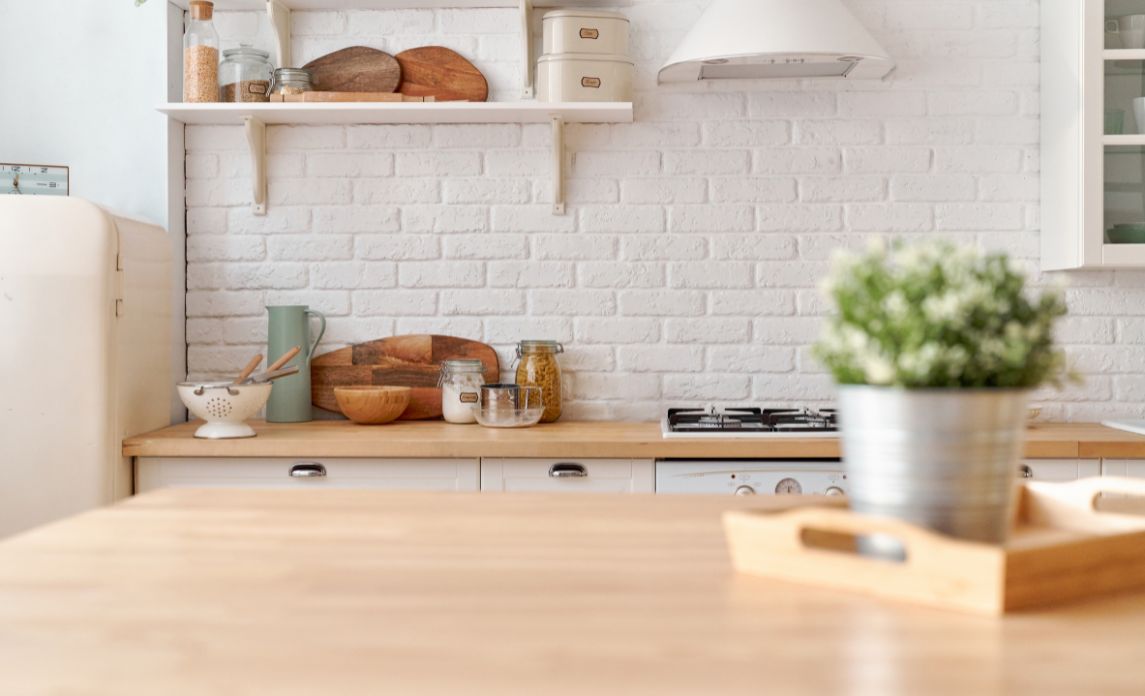A clean kitchen is important in any workplace, but especially in a food service setting. An unclean kitchen can lead to health hazards for both employees and customers. A clean kitchen also helps to prevent accidents and injuries.
There are several ways to keep a kitchen clean and organized. First, all food preparation areas should be cleaned regularly with hot water and soap. This includes countertops, cutting boards, knives, and any other equipment that comes into contact with food.
Second, all floors should be kept clean and free of debris. Third, all surfaces, including walls and ceilings, should be regularly dusted and cleaned. Finally, all food storage areas should be kept clean and organized.
Let's take a more detailed look at ten essential factors to pay attention to when cleaning your kitchen.
1. Keep Your Sink Sparkling
Your sink is one of the most important areas to keep clean in your kitchen. It's where you wash your hands, prepare food, and clean up after cooking. That's why it's important to make sure your sink is always clean and free of dirt, grease, and food particles.
To clean your sink, start by scrubbing it with hot water and soap. Then, rinse it well and dry it with a clean towel. Finally, disinfect your sink by spraying it with a household cleaner or wiping it down with a bleach solution.
2. Wash Your Dishes Thoroughly
Dirty dishes are one of the most common sources of bacteria in the kitchen. That's why it's important to wash your dishes thoroughly, using hot water and soap. If you have a dishwasher, make sure to run it on a hot cycle to kill any bacteria that may be present on your dishes.
3. Clean Your Counters and Tabletops
Your countertops and tables are where you prepare food, so it's important to keep them clean. To clean your counters, wipe them down with hot water and soap. Then, rinse them well and dry them with a clean towel. Disinfect your counters by spraying them with a household cleaner or wiping them down with a bleach solution.
4. Keep Your Floors Clean
Your floors can become dirty quickly, so it's important to sweep them regularly. If you have a mop, make sure to use it to clean your floors as well. Mops can help to remove dirt, dust, and debris from your floors. Disinfect your floors by mopping them with a household cleaner or bleach solution.
5. Don't Forget About Your Refrigerator
Your refrigerator is another important area to keep clean in your kitchen. To clean your refrigerator, start by removing all of the food from it. Then, scrub the interior surfaces with hot water and soap. Rinse the surfaces well and dry them with a clean towel. Finally, disinfect your refrigerator by spraying it with a household cleaner or wiping it down with a bleach solution.
6. Clean Your Oven
Your oven can become dirty quickly, so it's important to clean it regularly. To clean your oven, start by removing all of the food from it. Then, scrub the interior surfaces with hot water and soap. Rinse the surfaces well and dry them with a clean towel. Finally, disinfect your oven by spraying it with a household cleaner or wiping it down with a bleach solution.
7. Keep Your Garbage Can Clean
Your garbage can might become dirty quickly, so it's important to keep it clean. To clean your garbage can, start by removing all of the trash from it. Then, scrub the inside of the can with hot water and soap. Rinse the inside of the can well and dry it with a clean towel. Finally, disinfect your garbage can by spraying it with a household cleaner or wiping it down with a bleach solution.
8. Wash Your Hands Often
Washing your hands is one of the best ways to prevent the spread of bacteria in your kitchen. Make sure to wash your hands thoroughly, using hot water and soap, before you prepare food and after you handle raw meat. You should also wash your hands after you use the restroom, blow your nose, or touch any surfaces that may be contaminated.
9. Sanitize Your Kitchen Tools
Your kitchen tools, such as knives and cutting boards, can become contaminated with bacteria easily. To clean your kitchen tools, wash them with hot water and soap. Then, disinfect them by soaking them in a bleach solution or wiping them down with a household cleaner.
10. Disinfect Your Kitchen Sink
Your kitchen sink can become a breeding ground for bacteria if it isn't cleaned properly. To clean your sink, start by scrubbing it with hot water and soap. Then, rinse it well and dry it with a clean towel. Finally, disinfect your sink by spraying it with a household cleaner or wiping it down with a bleach solution.
Cleaning your kitchen regularly is important to keeping it safe and sanitary. By following these tips, you can help to ensure that your kitchen is always clean and bacteria-free.


